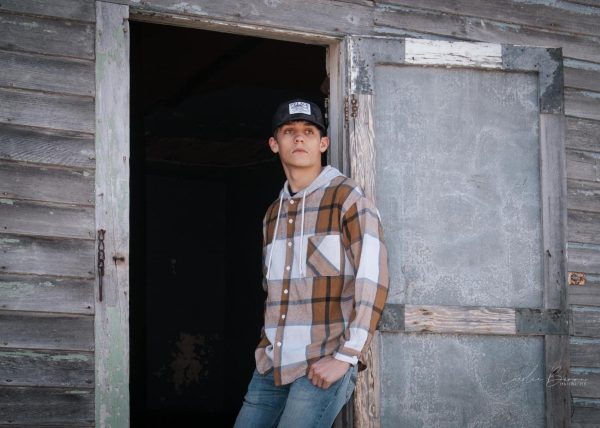Student Leaders Face Hong Kong City Elders In Televised Debate
October 25, 2014
HONG KONG — Student protest leaders on Tuesday debated Hong Kong officials on the future of democracy in this former British colony, the first time the two sides have confronted one another since street demonstrations erupted in late September.
The meeting was broadcast live on Hong Kong television, giving residents a chance to hear the students make their case against the system. It was a reminder of how different Hong Kong remains from the rest of tightly controlled China and of the freedoms many fear could disappear if they don’t stand up to Beijing.
Thousands of sympathizers at occupation sites in three parts of the city cheered as the 90-minute meeting wound on, and millions of Hong Kongers elsewhere watched in rapt attention.
The talks were not expected to break the impasse that has pitted the mostly young protesters against police and hecklers in sometimes violent clashes. But the broadcast was heavy on symbolism as four young students — all wearing the slogan “Freedom Now” on their black shirts — went head to head with their government elders, often challenging them to stand up to Beijing in seeking a more open system of governance.
One of most powerful declarations came from Lester Shum, deputy secretary-general of the Hong Kong Federation of Students.
“We are the generation chosen by times. I think the same applies to you — you are the officials chosen by times,” said Shum, according to a translation provided by the South China Morning Post. “Can you be responsible? Or will you be the ones that kill our political future and be the sinners of 1,000 years?”
Several hundred demonstrators and sympathizers watched the discussion live on big screens set up at the main occupation site, near the city’s government offices in Admiralty. They offered thunderous applause every time one of the four student panelists scored a perceived debate point, and sometimes booed and hissed when government panelists issued their statements.
Billed as the first of several “talks” between students and the government, the meeting was more a choreographed exchange of talking points. At issue is who can run in a 2017 election to serve as Hong Kong’s next chief executive. Democracy advocates want the ability to nominate candidates. Beijing and the Hong Kong government will allow only vetted candidates, those loyal to China, to serve as the region’s effective governor.
Led by Carrie Lam, the government’s second in command, officials stuck to their basic positions — no civic nominations of candidates, with only a nominating committee to select the two or three candidates who can run.
In comments to reporters Tuesday, the city’s current chief executive, C.Y. Leung, also known as Leung Chun-ying, floated a modification of the 2017 nominating committee to better reflect concerns of protesters. Lam also offered to send a supplementary report to Beijing addressing the views of protesters, which the government had previously refused to do.
Even so, several protesters said after the meeting Tuesday they saw no real change in the government’s position.
“We weren’t really expecting anything from these talks, anyway,” said Gary Yeung, 25, who has been part of the Admiralty protests for more than three weeks. “The whole point of this was P.R., to win back people on the fence.”
Initial public support for the protests has waned in the last two weeks, as the street occupations have disrupted transportation and hurt some retail businesses.
Beijing and the Hong Kong government, meanwhile, have recently stepped up a campaign to persuade the public that the protests are being instigated by the United States and other powers that want to destabilize China. Both the South China Morning Post and the People’s Daily have recently run commentaries making this claim, without citing specific evidence.
In an interview Sunday night with local broadcaster ATV, Chief Executive Leung said the protests were “not entirely a domestic movement, as external forces are involved.” Asked by reporters Tuesday to substantiate that claim, Leung said he would do so at a later time.
Yeung, who runs a local recruiting business, said he was inspired to join the protests not because of a love of democracy, but because of anger over police brutality. He said Leung’s claim was “totally false.”
“There are no outside forces here,” he said. “They are just trying to cast the blame on someone else, instead of taking responsibility.”
The legal system is also exerting pressure on the protesters. Hong Kong’s high court on Monday issued injunctions ordering them to vacate two protest sites, in Mong Kok and Admiralty. The injunctions were a response to complaints filed by taxi cab drivers and a property owner.
So far, police have not acted to enforce that order, one of several times the government has set an ultimatum for the “illegal” occupations to be abandoned.
Yeung said protesters are divided on tactics and goals, and many are discussing a new phase of civil disobedience.
“If the government doesn’t compromise, we would escalate the movement,” he said. One option being discussed, he said, “is doing flash roadblocks in different parts of the city. We could do it very fast, with teams of 20 or 30.”
Yeung, who has lived and went to school in Australia and Canada, says he recognizes that he and many others will likely be arrested for their participation in the Hong Kong occupations.
“I am ready,” he said. “I have a lawyer.”
———
©2014 McClatchy Washington Bureau
Visit the McClatchy Washington Bureau at www.mcclatchydc.com
Distributed by MCT Information Services







